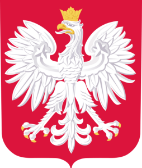Patrons
- Jan Śniadecki (1756-1830)
As a 16-year-old, he began his studies at the Jagiellonian University, completing them with the degree of Doctor of Philosophy. He continued his education at foreign universities: in Göttingen, Leyda, and Paris. After returning to Poland, having obtained the title of professor of astronomy and mathematics, he taught these subjects at Jagiellonian University. Astronomical observations became his true passion; for this purpose, he founded an observatory in Krakow. In 1806 he moved to Vilnius, becoming the Rector of the local university. There he expanded his versatile interests, both astronomical (questions of eclipses and occultations of stars by the Moon) and mathematical (he was a pioneer in the development of the calculus of probability). Not limiting himself to scientific and didactic activity, Jan Śniadecki wrote many valuable scientific works on mathematics (Algebra, the first textbook in this field in Poland or Trygonometria kulista analitycznie wyłożona) and the dissertation O Koperniku (Discourse on Nicolaus Copernicus, biography, 1802) that reminded the whole world that Copernicus was a Polish scholar, contrary to the prevailing belief at the time about the German origins of the famous astronomer. At the end of his busy life, Jan Śniadecki took up philosophy, journalism, and social satire.
- Jędrzej Śniadecki (1768-1838)
began his scientific career under the supervision and care of his brother. Following his brother’s wish, after completing a three-year course of study at the Jagiellonian University, Jędrzej Śniadecki continued his studies abroad. He earned his doctorate in medicine and philosophy in Pavia, then studied in London and Edinburgh, where he excelled in chemistry, surgery, and natural history. After returning to Poland, he was employed at Vilnius University and taught chemistry and pharmacy at the Medical Faculty. He was one of the first scholars to teach chemistry in Polish, creating chemical terminology in modern Polish. He wrote the textbook Początki chemii (The Beginnings of Chemistry), which was used in universities not only in Poland but also abroad. The greatest fame was brought to him by the work Teorya jestestw organicznych (The Theory of Organic Beings), presenting a concept, bold for those times, about the unity of the matter of the living world and inanimate matter. The work O fizycznym wychowaniu dzieci (On the physical education of children), in turn, initiated the introduction of physical education to schools as a subject of teaching. Jędrzej Śniadecki’s great passion was journalism, primarily to popularize science with its latest discoveries but also for educational and social matters. The Polish Chemical Society minted a special medal to celebrate Jędrzej Śniadecki’s merits as a chemist, awarded to the most outstanding Polish scientists representing this scientific discipline.
 Mail
Mail
 USOSweb
USOSweb
 Find an employee
Find an employee
 Translator
Translator
 Вступна кампанія
Вступна кампанія


